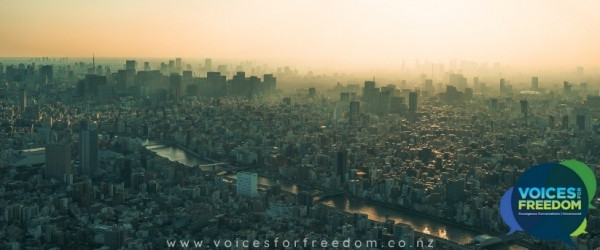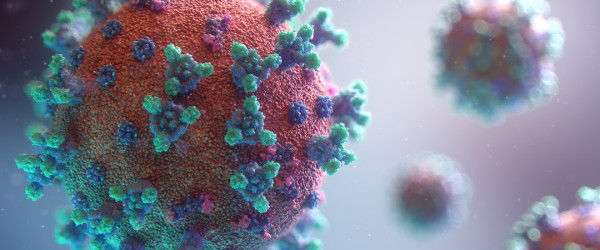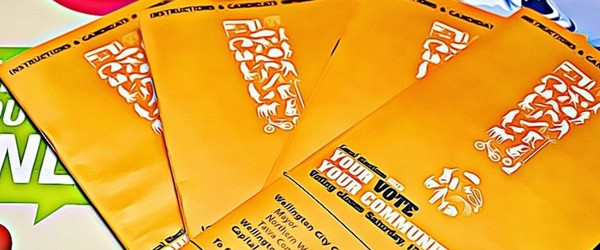
A Kiwi Living In Japan | A Guest Blog
As 2020 mercifully disappears behind us I’m sitting at home in Tokyo reflecting on how thankful I am to have been living in Japan this year as the COVID-19 madness took over.
The Japanese constitution does not allow for lockdowns, and probably never will.
The right not to be controlled by higher authorities is enshrined in the constitution, to prevent the kind of control the emperor exerted over citizens in WW2 ever happening again. So although comments have been popping up on online forums saying that Japan did lock down, I can assure you it didn’t. I think data showing that countries that didn’t lock down fared better necessitated some propaganda to redefine what ‘lockdown’ means, for the purpose of obfuscating inconvenient facts. Rather than admit that lockdowns are a failed experiment that have caused more harm than good we’re being directed to believe that countries that didn’t lock down in fact did. Yeah, no.
In truth all Japan did was close public schools much earlier for spring break and declare a state of emergency at the beginning of April. This means the government can commandeer hotels for hospitals in the event public health services are overwhelmed, and factories to produce PPE equipment and medicines if necessary. Neither of which happened to the best of my knowledge. It doesn’t confer any more powers on government than that; there were no “bubbles” imposed on citizens, no classifying of workers as essential/non-essential, no enforced business closures, and no mandates on mask wearing. There was just a very simple public health strategy from the beginning, The 3 Cs [1], polite requests to work from home if possible, and a temporary tightening of international borders. We could go out, see whomever we pleased and make our own decisions about how much personal risk we were prepared to take.
They also reactivated small local TB tracing centres [2] around the country which were originally set up in the 1930s to manage TB epidemics. Low tech but very effective, these centres were able to trace COVID-19 clusters [3] the same way early on, a key feature of Japan’s response to COVID which is rarely, if ever acknowledged by critics of the strategy here.
There’s no MIQ here. Anyone arriving in the country is asked to self-isolate at home or in a hotel/private home if a temporary visitor. Companies are responsible for making sure their business guests comply. Nobody actually checks up, it’s an honour system. The truth is nobody really cares that much. Quarantining healthy people doesn’t achieve much if the virus is endemic in the population. Some quietly ignore it, I’m told. I read somewhere recently that people were also ignoring requests not to use public transport to get home from the airport (because taxis are expensive). To solve the problem they’ve created international traveller-only carriages on trains from the airport. That’s pretty much what I’d expect. To me the Japanese epitomise keeping calm and carrying on. That’s what I’ve observed living through financial crises, earthquakes, tsunami, and now a pandemic with them. It’s just how they roll.
In spite of this laxness by New Zealand standards the sky has not fallen in. The number of deaths from COVID-19 stands at about 4,100 [4] so far I think (from a population of 127 million), the overall mortality rate [5] this year shows nothing remarkable going on. ICU capacity has never been reached let alone exceeded to my knowledge, and nobody knows anybody who has had the virus despite Tokyo being the largest and one of the most densely populated cities in the world, with a population of around 38 million. Like most countries we have a huge number of “cases” but no actual sick people. A casedemic.
Having not been subjected to a government fear campaign, there is not a lot of fear of the virus here generally. There are just under 2,000 employees in the company I work for. We had our first ever confirmed case last month, which barely caused a ripple. We were notified via a memo pinned to the notice board asking us to wash our hands more often and not come to work if we had a fever. The person wasn’t named. Nobody asked. I met with three people from a large financial institution early this week. They have 10,000 employees across several Tokyo branches, yet have not had a single confirmed COVID case to date. This is commonly reported here. Nobody has had it or knows anybody who has had it. A doctor working in Shinjuku, ground zero for COVID-19, told me in July that she’d seen very few patients with it and that the ones she had seen typically just had fever and a mild sore throat. Were they not testing we’d not know there was a new virus circulating. I wish they would stop testing.
Nobody knows for certain why the death rate is so low in Japan. Some things we do know are that testing of small groups of people in June showed cross immunity to COVID-19 from previous coronavirus infections [6], and a paper [7] published recently on people that were sero tested weekly from May to August concluded herd immunity had probably been achieved over the summer months in Tokyo. Which surprised nobody. This is a seriously crowded city.
We often hear the western world believes the low mortality rate here is down to cultural practices such as not shaking hands, mask wearing etc. Sounds a bit sketchy to me because people do actually shake hands here (this is the 21st century…) and some don’t wear masks. There’s also two or three million foreigners living here who presumably don’t adhere to traditional Japanese cultural practices. I know I don’t. And then there’s the matter of the mafia-owned clubs and parlours that are rife in Shinjuku and other parts of Tokyo and Osaka which have continued to operate throughout. I don’t think a lot of social distancing goes on in dens of iniquity. Just saying…
I’m a teacher, not a medical professional, but my gut tells me that what we’re seeing in Japan is not anything more than the true course of the virus after a heavy flu season [8] with no lockdowns imposed. In other words, in real time and sans all the bullsh*t that perpetuates things. Time will tell. If the information isn’t censored and disappeared by the fact checkers.
I wouldn’t want anyone to think Japan’s come out of this completely unscathed. The economy’s been affected by the lockdowns abroad and by the shift to office staff working from home here. International business travel to many countries hasn’t been possible for months and people making an effort to stay away from very crowded areas this year has meant that the hospitality industry has suffered, like everywhere. There will be job losses. It’s not so readily apparent in a city this size but it’s definitely happening. A wonderful little chicken restaurant near my office which has in all probability been there for over a hundred years (there’s a tea shop in Kyoto that’s 1000 years old) has not survived the migration of office workers from the CBD. There’s a closed sign in the window, the blinds are closed and the furniture is gone. No doubt there are many other small restaurants like that one that have met the same fate, sadly. These little places are such an intrinsic part of what makes this city so vibrant and amazing that even a single one closing is mourned by the workers who eat lunch in them every day. It really is sad.
We are definitely of the mind that we need to get back to normal sooner rather than later here and we’re not talking the new normal, we want travel to resume properly and people to go back to offices. I think I speak for us all when I say we are well and truly over the COVID mania. Everything has felt relatively normal here for the most part this year, but we are still living in limbo, reliant on the rest of the world to get back to normal so we can get on with life properly too. We have an Olympic Games we’d like to get on with hosting next year, thanks.
Don’t get me wrong, we are very aware that we’ve not had the same level of stress and uncertainty as our friends and family elsewhere who live in constant fear of a rise in “cases” throwing them back into lockdown for weeks or months on end, and for that we are immensely grateful. Immensely. We take nothing for granted. We also know we are the exception not the rule. We worry a lot about what the effects of living under such uncertainty will be in terms of mental and physical health for people living at the mercy of these newly authoritarian governments.
We sincerely hope that next year will be better for everybody.
P.S. As I finish writing this I see that the new and less deadly variant of COVID-19 reaching these shores has necessitated a tightening of the borders again here from Monday. I guess that means 2021 will be more of the same…
REFERENCES
[1] https://www.mhlw.go.jp/content/10900000/000619576.pdf [2] https://www.bloomberg.com/news/articles/2020-06-23/the-low-tech-way-that-japan-managed-to-tackle-the-virus-quickly [3] https://www.mhlw.go.jp/content/10900000/000639224.pdf [4] https://www.worldometers.info/coronavirus/country/japan/ [5] https://www.medrxiv.org/content/10.1101/2020.07.09.20143164v9 [6] https://mainichi.jp/english/articles/20200612/p2a/00m/0na/009000c [7] https://www.news-medical.net/news/20200924/Tokyo-citizens-may-have-developed-COVID-19-herd-immunity-say-researchers.aspx [8] https://www.nippon.com/en/japan-data/h00386/japan-gripped-by-major-flu-outbreak.htmlThanks for reading and sharing! Remember to sign up to our mailing list to keep up with the latest news.
If you value what we are up to at Voices and would like to support our ongoing work you can donate to us and support our nationwide public education campaigns (webinars, flyers, billboards...) and other initiatives to speak up and push back for your freedoms.



